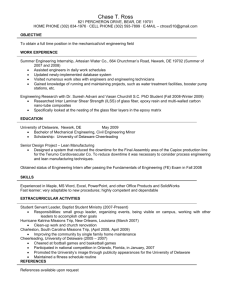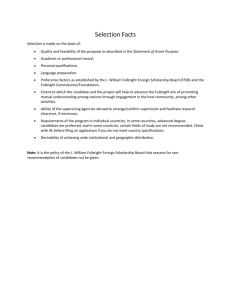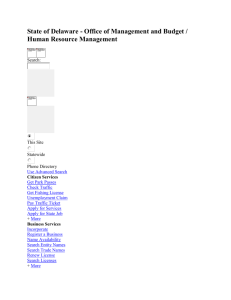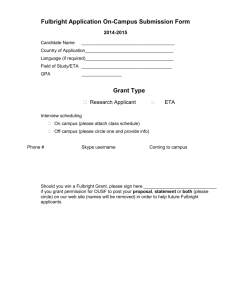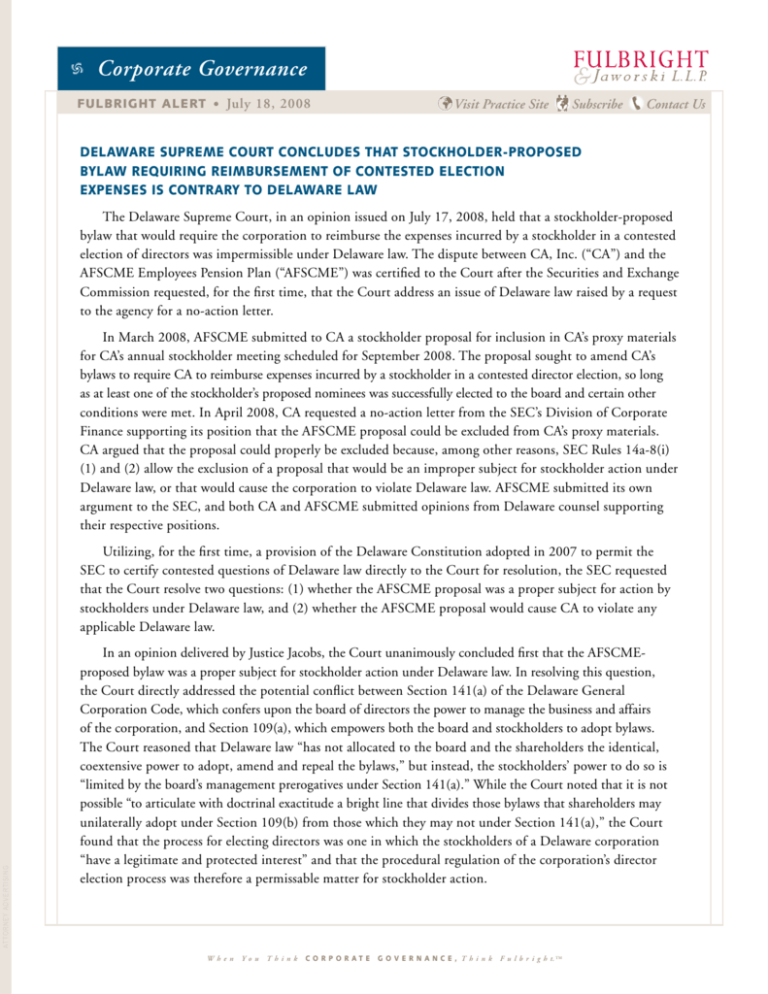
cc Corporate Governance
FULBRIGHT ALERT
• July 18, 2008
Visit Practice Site
Subscribe
Contact Us
Delaware Supreme Court Concludes That Stockholder-Proposed
Bylaw Requiring Reimbursement of Contested Election
Expenses is Contrary to Delaware Law
The Delaware Supreme Court, in an opinion issued on July 17, 2008, held that a stockholder-proposed
bylaw that would require the corporation to reimburse the expenses incurred by a stockholder in a contested
election of directors was impermissible under Delaware law. The dispute between CA, Inc. (“CA”) and the
AFSCME Employees Pension Plan (“AFSCME”) was certified to the Court after the Securities and Exchange
Commission requested, for the first time, that the Court address an issue of Delaware law raised by a request
to the agency for a no-action letter.
In March 2008, AFSCME submitted to CA a stockholder proposal for inclusion in CA’s proxy materials
for CA’s annual stockholder meeting scheduled for September 2008. The proposal sought to amend CA’s
bylaws to require CA to reimburse expenses incurred by a stockholder in a contested director election, so long
as at least one of the stockholder’s proposed nominees was successfully elected to the board and certain other
conditions were met. In April 2008, CA requested a no-action letter from the SEC’s Division of Corporate
Finance supporting its position that the AFSCME proposal could be excluded from CA’s proxy materials.
CA argued that the proposal could properly be excluded because, among other reasons, SEC Rules 14a-8(i)
(1) and (2) allow the exclusion of a proposal that would be an improper subject for stockholder action under
Delaware law, or that would cause the corporation to violate Delaware law. AFSCME submitted its own
argument to the SEC, and both CA and AFSCME submitted opinions from Delaware counsel supporting
their respective positions.
ATTORNEY ADVERTISING
Utilizing, for the first time, a provision of the Delaware Constitution adopted in 2007 to permit the
SEC to certify contested questions of Delaware law directly to the Court for resolution, the SEC requested
that the Court resolve two questions: (1) whether the AFSCME proposal was a proper subject for action by
stockholders under Delaware law, and (2) whether the AFSCME proposal would cause CA to violate any
applicable Delaware law.
In an opinion delivered by Justice Jacobs, the Court unanimously concluded first that the AFSCMEproposed bylaw was a proper subject for stockholder action under Delaware law. In resolving this question,
the Court directly addressed the potential conflict between Section 141(a) of the Delaware General
Corporation Code, which confers upon the board of directors the power to manage the business and affairs
of the corporation, and Section 109(a), which empowers both the board and stockholders to adopt bylaws.
The Court reasoned that Delaware law “has not allocated to the board and the shareholders the identical,
coextensive power to adopt, amend and repeal the bylaws,” but instead, the stockholders’ power to do so is
“limited by the board’s management prerogatives under Section 141(a).” While the Court noted that it is not
possible “to articulate with doctrinal exactitude a bright line that divides those bylaws that shareholders may
unilaterally adopt under Section 109(b) from those which they may not under Section 141(a),” the Court
found that the process for electing directors was one in which the stockholders of a Delaware corporation
“have a legitimate and protected interest” and that the procedural regulation of the corporation’s director
election process was therefore a permissable matter for stockholder action.
W h e n
Yo u
T h i n k
C ORPORATE
GO V ERNAN C E , T h i n k
F u l b r i g h t. TM
Delaware Supreme Court Concludes That Stockholder-Proposed Bylaw Requiring
Reimbursement of Contested Election Expenses is Contrary to Delaware Law
Page The Court next examined whether, although a permissible subject of stockholder action, AFSCME’s
proposed bylaw would cause the corporation or its directors to violate any applicable Delaware law. The Court
concluded that it would, because at least in some circumstances, the proposed bylaw would prevent directors
from exercising their fiduciary duties to cause the board to deny reimbursement, such as in proxy contests that
address “personal or petty concerns, or . . . promote interests that do not further, or are adverse to, those of
the corporation.”
The Delaware Supreme Court’s decision in this case, while not definitively stating a “bright line” test
defining permissable stockholder limits on director conduct through bylaw amendments, does provide
some helpful guidance to Delaware corporations and their advisors. At a minimum, it validates the implicit
structure of the Delaware corporation embodied by Section 141(a) – that the corporation is “managed by or
under the direction of the board of directors,” and that, although procedural and process limits on the board’s
duties are permissable, such limits cannot infringe on the directors’ proper exercise of their fiduciary duties.
The Delaware Supreme Court’s decision in CA, Inc. v. AFSCME Employees Pension Plan, No. 329, 2008,
is available on the Delaware Court website (http://courts.delaware.gov/opinions/(xz3yrj55wgodte452a3a2bjm)/
download.aspx?ID=109110).
c
This article was prepared by James R. Griffin (jgriffin@fulbright.com or 214 855 8255), Gerard G. Pecht
(gpecht@fulbright.com or 713 651 5243) and Daniel J. Pirolo (dpirolo@fulbright.com or 713 651 5232)
from Fulbright’s Corporate, Securities and Transactions Practice Group.
2
Notice: We are providing the Fulbright Alert as a commentary on current legal issues, and it should not be considered legal advice, which depends
on the facts of each situation. Receipt of the Fulbright Alert does not establish an attorney-client relationship. The listed attorneys and/or other attorneys
may provide services in connection with a particular matter.
E-Mail Delivery of Future Issues? Would you prefer to receive the Fulbright Alert by e-mail? If so, please send us your e-mail address to
clientrelations@fulbright.com and specify “Fulbright Alert” in your message.
Address Change or to Unsubscribe? Please forward your request to Client Relations, Fulbright & Jaworski L.L.P., Fulbright Tower,
1301 McKinney, Suite 5100, Houston, TX 77010-3095 USA or contact Client Relations by telephone at +1 866 385 2744 or by e-mail to
clientrelations@fulbright.com.
AUSTIN • BEIJING • DALLAS • DENVER • DUBAI • HONG KONG • HOUSTON • LONDON • LOS ANGELES
MINNEAPOLIS • MUNICH • NEW YORK • RIYADH • SAN ANTONIO • ST. LOUIS • WASHINGTON, D.C.
07/08 MO
www.fulbright.com
• 866-FULBRIGHT [866-385-2744]
Copyright 2008 - Fulbright & Jaworski L.L.P., all rights reserved.


